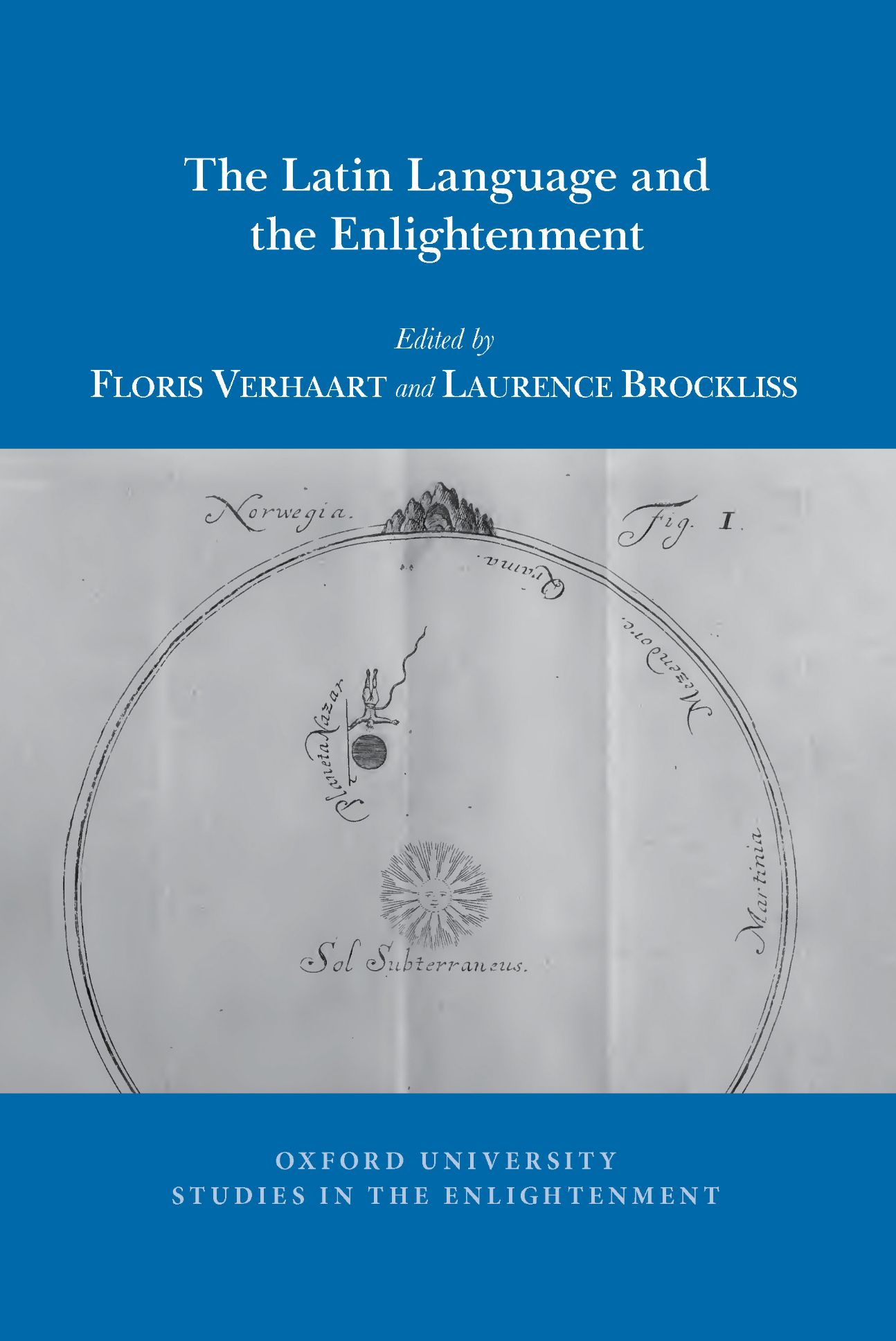
The Latin Language and the Enlightenment
Edited by Floris Verhaart & Laurence Brockliss
This volume of essays offers a new perspective on the Enlightenment by looking at the uses of Latin in the long eighteenth century. The essays demonstrate how the language remained prominent in cultural life and how Latin sources can help us improve our understanding of this fascinating period in history.
The first book-length treatment of the role played by Latin in the age of Enlightenment.
Offers an insightful new perspective on many current debates concerning the Enlightenment, such as its relationship with earlier cultural traditions (e.g. Renaissance Humanism) and the extent of its coherence across the European continent.
Contains essays by an interdisciplinary team of leading experts.
—
Table of Contents:
List of figures and tables
I. Introduction
FLORIS VERHAART, Introduction: Latin and the Enlightenment
LAURENCE BROCKLISS, The empire of Latin
II. Constructing Identity
FLORIS VERHAART, A Humanist Identity in an Enlightened Age: Neo-Latin Poetry, Canon Building, and the Quarrel of the Ancients and the Moderns in the Dutch Republic
SIMON WIRTHENSOHN, Enlightened tendencies in eightee...
ANDREW LAIRD, Creole Latin legacies and the European Enlightenment
STEFAN TILG, Latin public, Latin literature, and Latin nationalism in eighteenth-century Hungary
III. Authority
KATHERINE A. EAST, Locating Latin in the heterodox exchanges of Enlightenment England: Toland and his critics
JOHN T. GILMORE, ‘Non interpres, sed poeta’: William Jones and his ‘Ode Sinica’
IV. Development of new ideas and knowledge
MALIKA BASTIN-HAMMOU, The uses of Latin in Madame Dacier’s Greek scholarship: a story of emancipation
MATTHEW FOX, Latin Critical Theory in the Early Eighteenth Century
NICHOLAS MITHEN, Vico among the critics: Latin and philology in the gestation of the Scienza Nuova
ALESSANDRO OTTAVIANI, Mapping diseases and dissecting landscapes: Giovan Battista Morgagni’s Latin prose from the Adversaria anatomica ot the Epistolae Aemilianae
V. Diffusion of Ideas
ESTELLE HAAN, Humanism and scientific invention in the Neo-Latin poetry of Enlightenment England
SCOTT MANDELBROTE, Newton in Latin: An Enlightenment Author and his European Audience
JAN PAPY, Lecture notes from Leuven University 1750-1793: The Scientific Enlightenment in the Eighteenth-Century Classroom?
ELENA DAHLBERG, Jean-Jacques Rousseau in Latin Dissertations from Sweden, ca. 1755–1815
DANIEL WENDT, Ab omni verborum obscoenitate purgata? Latin obscenities, audiences, and humanism in the French Enlightenment
Author biographies
Summaries
Bibliography
—
Floris Verhaart is a Postdoctoral Fellow at the University of Warwick. His research comprises the history of early modern Europe, as well as Neo-Latin Studies. His publications include Classical Learning in Britain, France, and the Dutch Republic (1690-1750): Beyond the Ancients and the Moderns (Oxford, 2020).
Laurence Brockliss is emeritus professor of early modern French History at the University of Oxford whose principal area of research is the Republic of Letters and the Enlightenment. His books in the field include French Higher Education in the Seventeenth and Eighteenth Centuries (Oxford, 1987) and Calvet’s Web: Enlightenment and the Republic of Letters in Eighteenth-Century France (Oxford, 2002).
—
The Oxford University Studies in the Enlightenment series, previously known as SVEC (Studies on Voltaire and the Eighteenth Century), has published over 500 peer-reviewed scholarly volumes since 1955 as part of the Voltaire Foundation at the University of Oxford. International in focus, Oxford University Studies in the Enlightenment volumes cover wide-ranging aspects of the eighteenth century and the Enlightenment, from gender studies to political theory, and from economics to visual arts and music, and are published in English or French.